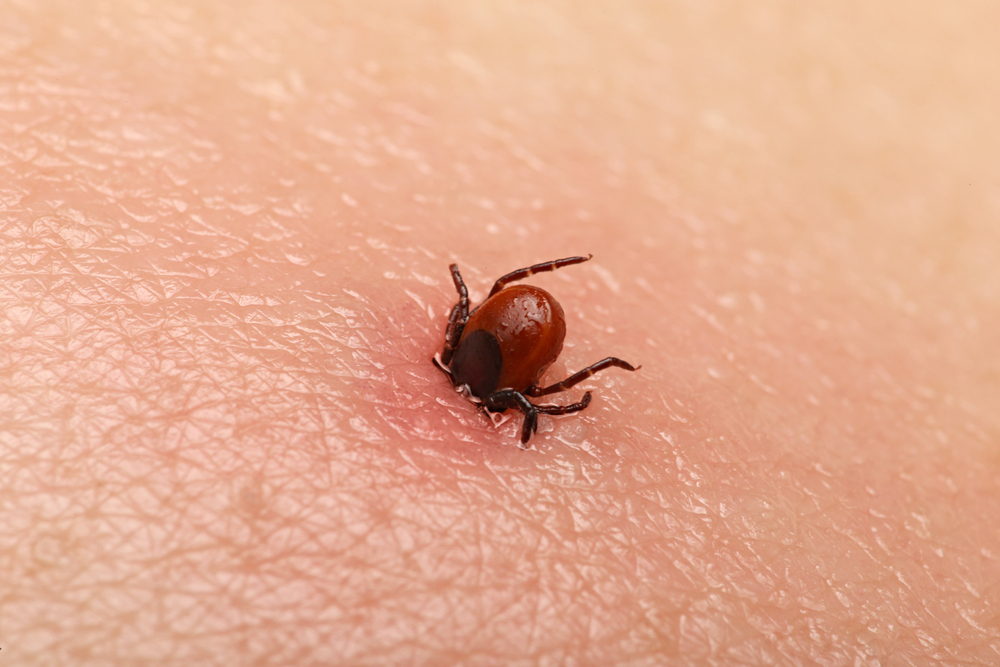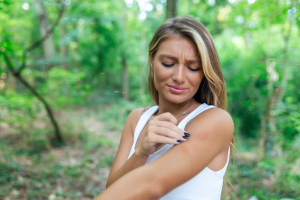Identifying Infected Insect Bites: Signs, Symptoms and Treatment

Insect bites are common, especially during warmer months when insects are more active. While most insect bites are harmless, some can become infected, leading to complications if not treated promptly. Identifying an infected insect bite is important for timely and effective treatment. In this article, we will discuss the signs, symptoms and treatment options for infected insect bites.
Signs and Symptoms of Infected Insect Bites
Infected insect bites can lead to discomfort and complications if left untreated. Recognising the signs and symptoms is important for timely intervention. Symptoms of insect bites include:
● Increased Redness and Swelling: While mild redness and swelling are normal reactions to insect bites, an infected bite may exhibit worsening redness and swelling that spreads beyond the initial bite area.
● Pain and Tenderness: Infected bites may become increasingly painful and tender to the touch, especially as the infection progresses.
● Heat: The affected area may feel warm or hot to the touch, indicating an inflammatory response to the infection.
● Pus: Pus-filled blisters or bumps may develop on the skin, indicating a bacterial infection.
● Red Streaks: Red streaks extending from the bite site can be a sign of lymphangitis, a serious bacterial infection that requires immediate medical attention.
● Fever and Chills: In more severe cases, an infected insect bite can lead to systemic symptoms such as fever and chills, indicating the infection has spread beyond the skin.
Treatment for Infected Insect Bites
Treating infected insect bites promptly is essential to prevent complications. Proper treatment involves:
● Clean the Bite Area: Wash the affected area with soap and water to remove any dirt or bacteria.
● Apply Antiseptic: Apply an antiseptic ointment or cream to the bite to help prevent infection.
● Use Cold Compress: Applying a cold compress to the bite can help reduce swelling and relieve itching.
● Over-the-Counter Medications: Taking over-the-counter pain relievers such as ibuprofen or acetaminophen can help reduce pain and inflammation.
● Avoid Scratching: While it may be tempting to scratch the bite, this can increase the risk of infection. Try to avoid scratching the affected area.
● Seek Medical Attention: If the bite becomes increasingly red, swollen or painful or if you develop fever or other systemic symptoms, seek medical attention promptly. A healthcare provider may prescribe antibiotics to treat the infection.
Preventing Infected Insect Bites
Preventing infected insect bites is key to avoiding discomfort and potential complications. The preventive measures are particularly important in areas where insects are prevalent. It includes:
● Use Insect Repellent: Use insect repellent containing DEET or picaridin to help prevent insect bites.
● Wear Protective Clothing: Wear long sleeves, pants and closed-toe shoes when outdoors, especially in areas where insects are prevalent.
● Avoid Perfumes and Bright Colours: Insects are attracted to perfumes and bright colours, so try to avoid using them when outdoors.
● Stay Indoors During Peak Insect Times: Insects are most active during dawn and dusk, so try to stay indoors during these times if possible.
● Inspect Bedding and Clothing: Inspect bedding and clothing for insects before use, especially when travelling or camping.
Get Effective Relief from Insect Bites Today with Pharmacy First
Infected insect bites can cause discomfort and, if left untreated, lead to serious complications. Recognising the signs and symptoms of an infected insect bite is essential for prompt treatment. Pharmacy First offers a convenient solution for treating minor ailments like insect bites, providing quick access to healthcare services without the need for a GP appointment. It is designed to provide convenient and timely access to healthcare for common conditions such as insect bites, hay fever and skin rashes.
With Pharmacy First, patients can consult with one of our pharmacists who can assess their symptoms and recommend appropriate treatment. We provide expert advice, over-the-counter medications and treatment options tailored to your needs. Visit our branches for insect bite treatment Banstead, Earlsfield, Epsom, London and Merton.






